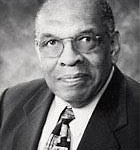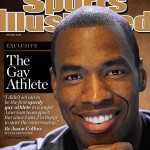by Frederick Sparks
Ever since the Zimmerman verdict was announced, there has been a steady stream of black talking heads vying for the Bill Cosby Call Black People Out on Their Shit award. These sociopolitical observers embrace their task of exhortation to remind black people that we are indeed responsible for not only the verdict, but ultimately for most of the challenges plaguing our communities, because we are complicit in promoting images that justify the profiling and stereotyping of young black men, and otherwise make bad choices.
Actor Romany Malco, known primarily for the television show Weeds and the movie 40 Year Old Virgin penned a piece for the Huffington Post, in which he at one points laments the lack of critical thinking, yet follows up (in a section specifically addressed to young black people) by attributing the Zimmerman trial outcome to the fact that we lost the verdict by “using media outlets (music, movies, social media, etc.) as vehicles to perpetuate the same negative images and social issues that destroyed the black community in the first place. When we went on record glorifying violent crime and when we voted for a president we never thought to hold accountable.”
Once again, the responsibility for the outcome is put squarely on the shoulders of black people. As if there is no American historical precedent for the de-humanization of black men and the characterization of black men as criminals that NEVER needed a valid excuse.
CNN anchor Don Lemon got in on the act, deciding that in the wake of the Zimmerman verdict (apparently enough time had passed) it was time to give black America some ” tough love”. Lemon went on to say that Bill O’Reilly hadn’t gone far enough in recent comments about the problems of black Americans, and set out to enumerate 5 things that could be done to “fix” the community: 5) pull up your pants 4) stop using the N word 3) Don’t litter in your neighborhood (apparently white people don’t litter) 2) Finish school and 1) don’t have children out wedlock. On the surface nothing much seems wrong with these statements (though the litter one is strange, I’ve seen plenty of white people litter). The problem is elevating some of the issues, in particular sagging pants and negative mass media images of black Men, to a position of primacy in the hierarchy of causative factors for persistent racial socioeconomic inequality.
It’s all well and good to say “finish school” but how about examining the factors that attribute to high dropout rates, including punitive corrective measures such as expulsion and detention that are applied disproportionately to African American students for the same offenses as white students. When we have a criminal justice system that through the war on drugs, imprisons young black man at rates that are several multiples of that of their white counterparts, despite the fact that blacks and whites both sell and use drugs at similar rates (Michelle Alexander’s The New Jim Crow should be required reading for anyone even attempting a discussion of contemporary racial disparity), when we have continuing joblessness in inner city communities that started with the shift from living wage paying manufacturing jobs to an economy based on financial services, when we have persistent wealth disparities between whites and blacks largely traceable to disparities in home ownership which are explained by far more factors that gangsta rap and sagging pants…when we have all these causative factors that are far more prominent in magnitude and far more insidious…this compulsion to always turn the conversation back to black behavioral choices is particularly short sighted, reductionist and troubling when it comes from black commentators.
And not only are many of these personal responsibility exhorters guilty of reductionism, they often make blithe assertions, backed with very little evidentially, about the nature of the African American community. Like “Black people are the only ones out here killing each other “, when murder is largely an intra-racial crime and most white murder victims are killed by white people. Or “Black people don’t care about/aren’t doing anything about black on black violence and crime in their own communities”, when blacks have always been active in efforts to curb violence in their communities.
Even the largely accepted assertion that the black community pervasively celebrates violence and criminality and has no shame around these issues is a dubious one. Michelle Alexander cites the work of law professor Donald Braman on the experience of families in Washington DC affected by mass incarceration. Contrary to popular belief, young men returning to these predominately black communities after serving prison terms faced a high degree of shame and stigma in their communities, stigma that extended to their families.
Even pointing to the popularity of gangster rap as evidence of pervasive black community celebration of violence and criminality is problematic. For one, as we know, the majority of the consumers are white. And has there not been a persistent celebration in popular culture, across racial lines, of criminals, rebels and counterculture figures? Does the love for the Sopranos and the Godfather and Bonnie and Clyde as works of art and fiction indicate a celebration and endorsement of the values of these characters? Are these images problematic? Sure they can be. And far from wholesale endorsement of these images among black people, there has been a long discussion and critique within the community about these images. I’m not convinced by the argument that these images therefore reflect cultural values or that they are the predominant contributor to the racist stereotyping and profiling of African American men. There’s too much historical precedent for the existence of that phenomenon without the need for a valid reason.
There’s also historical precedent for this type of critique by African Americans about African Americans. It’s the Booker T Washington-esque Politics of Respectability. Washington exhorted newly emancipated African Americans to prove themselves worthy of the franchise, worthy of being treated equal, by demonstrating thrift and industry, and eschewing indolence and wantonness ( Isn’t it amazing how even back then before gangsta rap and sagging pants the black masses somehow still managed to drag down the upwardly mobile blacks?) Then as now, the problem apparently was not continuing racial hostility and discrimination in a land that had been decimated economically by a war, but was instead traceable the behavioral choices and character flaws of black Americans.
I also believe the cognitive roots of this type of critique are explainable by System Justification Theory. People exhibit a tendency to defend the status quo, even if one belongs to a group disadvantaged by that the status. There is a psychological imperative to believe that one does exist within a just system. Implicit in these critiques of dysfunctional black behavior I see the embrace of the idea that America is at heart a true meritocracy, perhaps with a few racial distortions here and there. Yes there is some discrimination, but really the lived experiences of the masses are predominantly dictated by their behavior and choices. This is incredibly psychologically useful for the individual African American, who, while cognizant of racism, still needs to feel like the worse can’t happen to them because they are educated, professional, wear their pants at an appropriate level on their waist and in general made the right choices. When a person’s “in group” status is precarious I think there is even more of tendency to dump on the marginalized (as we saw with virulent white ethnic immigrant opposition to racial integration) and to reinforce in one’s own mind the ultimate justice of the system.
There need be no false dichotomy between the recognition of continuing structural inequalities and the recognition of the need to be personally responsible and avoid counter-productive choices. But this discussion needs to be based in a context of comprehensive understanding of the issues facing the communities discussed, not on convenient rhetorical touchstones. And I am bemused by the characterizations of these criticisms of black Americans as somehow novel or brave. We exist within a social-political and media framework that repeatedly pushes the notion that the disadvantaged are largely responsible for their own plight, that victims must have played some role in their own fate, that those who are better off are better off because they are better people. Nothing new or brave about that.




